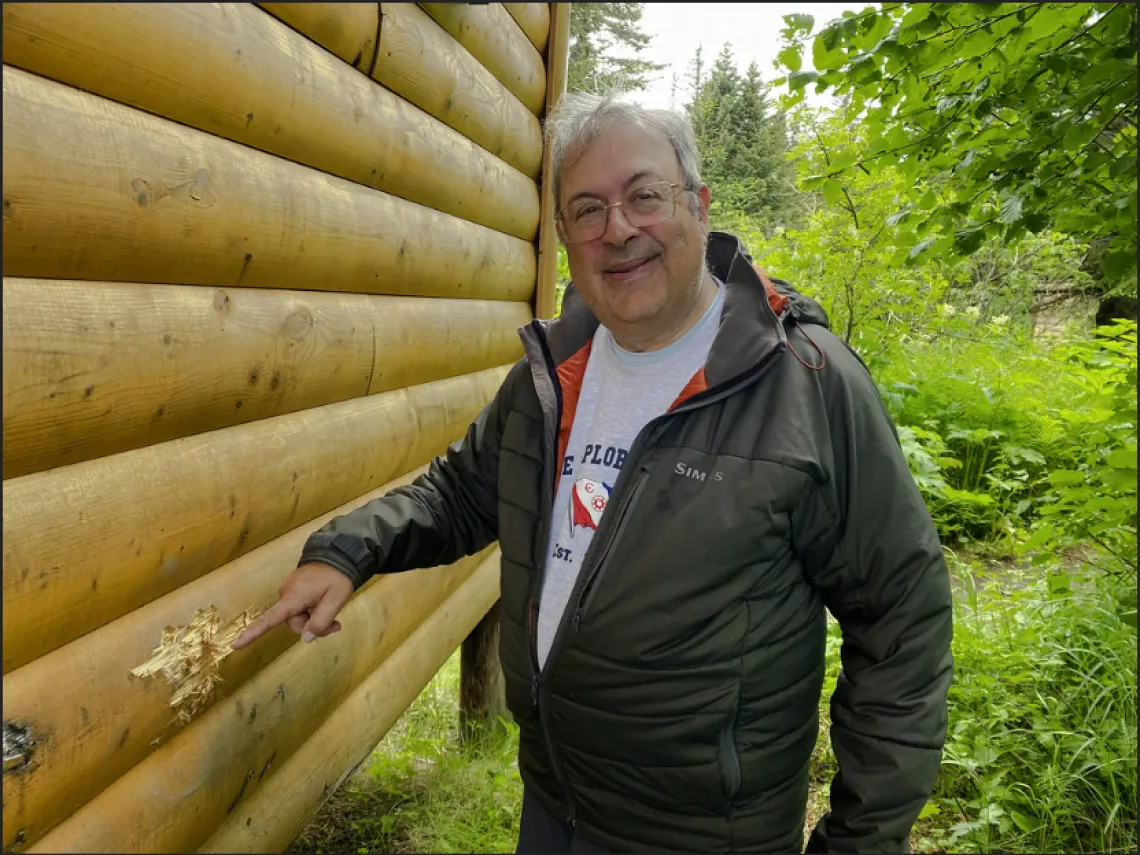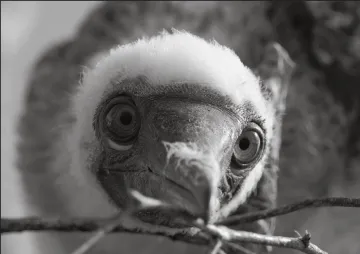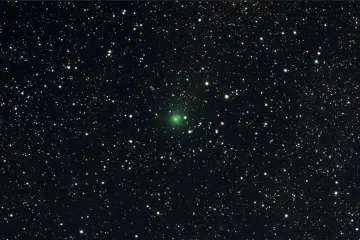University of Arizona Researcher Reflects on Life of Improving Food Quality
Eliot Herman has been a researcher at U of A's BIO5 institute for the past ten years, during which he has improved the protein content in soybeans and engineered allergen-free crops.

Eliot Herman discovering fresh bear scratches on his cabin while on a photography expedition.
Through many years in research and academia, Eliot Herman has been at the forefront of biological and plant science advancement. From cutting-edge scientific work to photography in the Antarctic, Herman has led a life of passion and advocates for others to do the same.
After receiving his doctorate in biology from the University of California, San Diego, Herman worked as a postdoctoral fellow at Caltech. He then worked as a Marine biologist before receiving a job with the Department of Agriculture. There, he served as a scientific advisor to American Embassies in Sweden and worked in Japan and Israel with NSF and USDA. He has been working with U of A’s BIO5 institute for the past ten years.

Wildlife photography by Herman titled "Eyes of a red footed booby chick"
“I have been very fortunate to hold several jobs over my life,” Herman said, “It’s good to change jobs. It informs and broadens your perspectives.”
At BIO5, Herman has been focused on improving the quality and quantity of food worldwide. “Proper nutrition is the basis of all health,” Herman said. “For at least half the people in the world, access to nutritious food is a challenge.”
His research is largely at the intersection of medicine and food—namely food allergies. “I was among the first to engineer a crop that does not have a food allergen in it,” Herman said. “This was a huge step toward increasing access to food for all people.”
Early in Herman’s career, the science of molecular biology was quickly gaining prominence, creating new and exciting opportunities for biologists. For the first time, they could engineer crops with specific traits in mind.
In Herman's case, he worked to improve the protein content in soybeans. According to a study published in The National Library of Medicine, soy and soy products are the only source of high-quality plant protein globally. Raising the standard of protein in soybeans ensures easier access to good nutrition worldwide.

Astrophotography by Herman capturing Comet 12P Pons-Brooks on January 15 2024
Herman has recently become a professor emeritus in BIO5, allowing him to pursue passions outside of his profession, including photography.
Herman has amassed a large gallery of landscape, wildlife, and astrophotography, all of which are available on his website.
“You get two or three minutes to photograph an eclipse that comes every two or three years,” Herman said. “It’s a scramble to get those interesting moments, you have to be prepared to grab that singular moment in time because you are never getting it back. I think that’s why I like it so much.”
Herman recently journeyed to the Antarctic where he followed and photographed a colony of emperor penguins. The photos from this expedition were given to EarthSky, where the movements of the colony were reported on.
“Find those things that you love, and do interesting things with your life,” said Herman. “If I can give any piece of advice, it would be that.”

